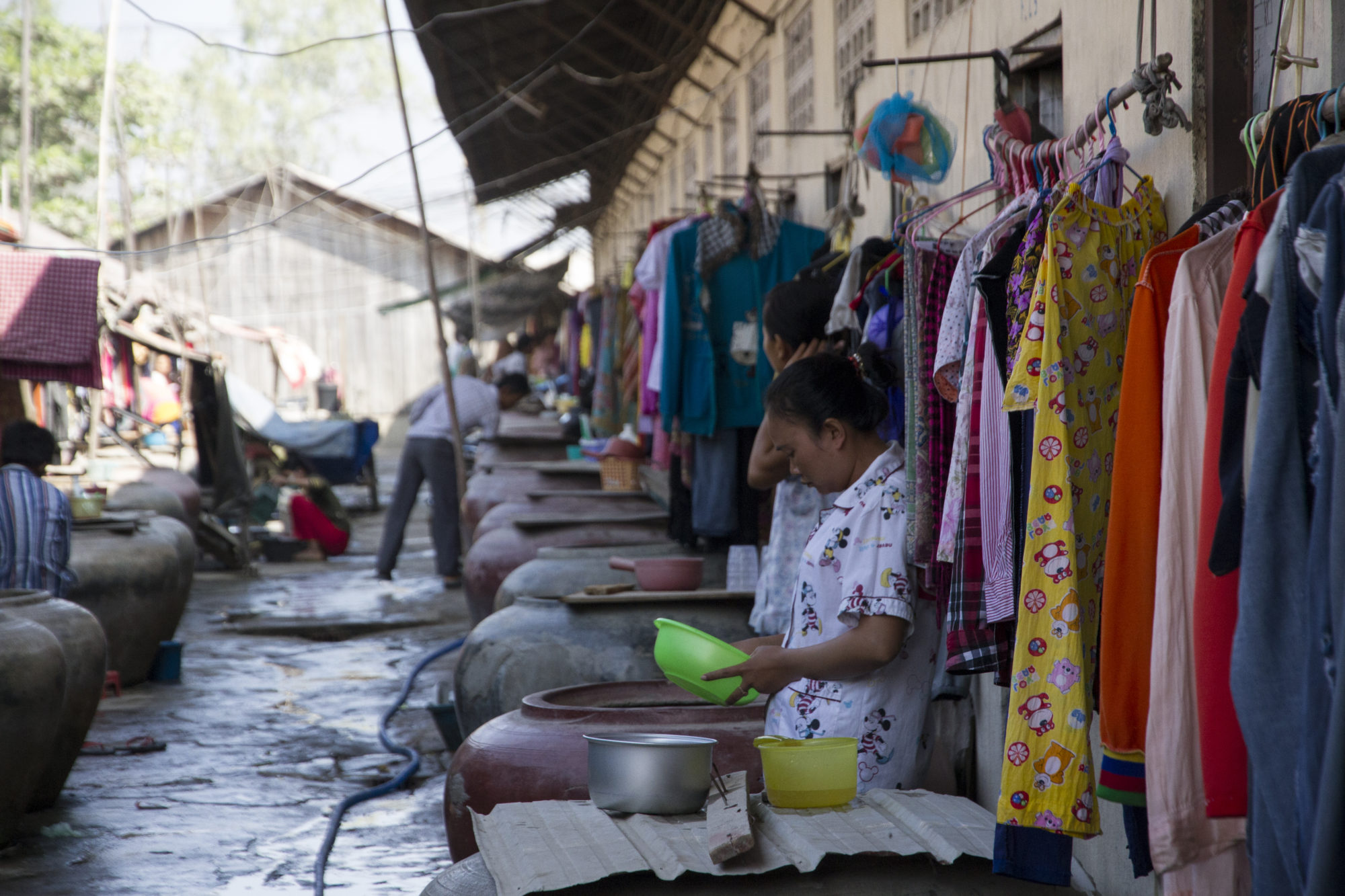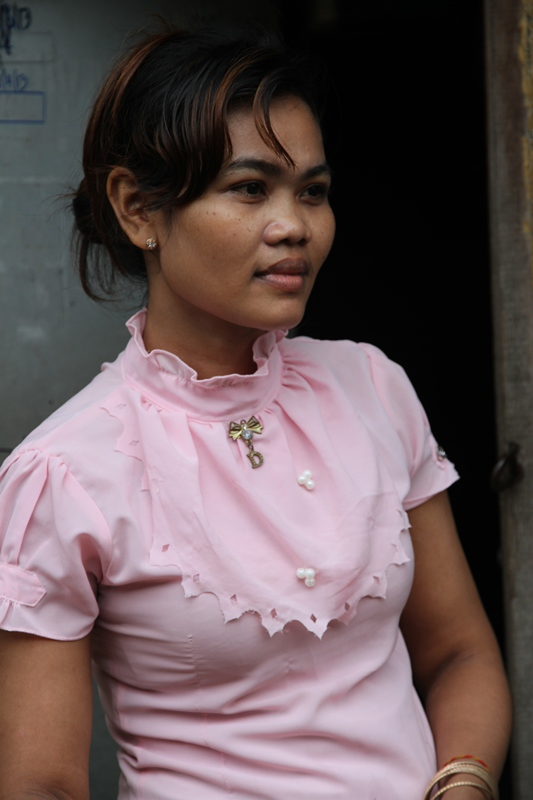It is around five-thirty in the afternoon but the path leading to Bopha’s[1] rented room is dark. There is no light, and passers-by depend on illumination from each room to move around. In this compound, there are approximately 320 rented rooms. The toilets are in bad condition and smell rank. All workers bathe in front of their rooms. This gives little privacy for women.

Many garment workers in Cambodia live in poor conditions. Here, women have no choice but to bathe in front of their rooms with no privacy. Photo by Savann Oeurm/ActionAid
Bopha is a young garment factory worker from rural Cambodia, currently earning her income through work in the city.
Mostly young migrants from poor rural areas, Phnom Penh’s women garment workers struggle to cover their basic living costs on the current $100 monthly minimum wage, forcing them to work excessive overtime up to six days a week. Such abysmal wages leave them no choice but to rent tiny rooms, often shared with up to 10-15 others. Access to water, sanitation, electricity, healthcare, or education for their children is limited. Transportation links to the factories are poor, especially late at night. Returning home on foot after dark along poorly lit streets means they often face violence and harassment.
According to Bopha, “Everything is very expensive now and we hardly live on this wage.”
Garments and footwear account for a staggering 80% of Cambodia’s exports, with shipments to the US and EU – its biggest markets [2] – valued at £4.1 billion in 2013.[3] This gives the brands immense power and leverage in influencing decisions around wages.
The fast fashion industry has now become known for its exploitation of women workers who put in long hours for unfair wages.
How is this allowed to continue?
When governments endorse free trade deals that favour corporate power over women’s rights, it can play a large part in perpetuating this cycle of exploitation. The terms of the deal encourage large multinational companies to open operations in highly feminised manufacturing work sectors, like the garment sector.
Multinational companies then exert downward pressure on prices paid to local factories for huge volumes of clothing in a context of fierce competition between South Asia’s garment exporting countries, many of which have dismal records on human rights and gender discrimination. This inevitably leads to a race to the bottom in terms of wages and working conditions.
So, while brand profits and CEO salaries soar, the conditions encouraged by free trade policies serve to further entrench the economic inequality already endured by women in Cambodia and other low income countries.
Poor working conditions and low wages are a big challenge for women like Bopha. She often ends up working overtime to make ends meet.

Bopha is a young garment factory worker from rural Cambodia, currently earning her income through work in the city.
During peak season when deadlines were tight, she worked ten hours overtime. This meant working her normal shift from 7am-4pm, and continuing the overnight shift from 7pm-6am with only an hour break for a meal between 11pm-12am.
Even still, she only earns enough money to visit with her young son 2-3 times a year, who is being brought up by his grandmother in their home village.
“I miss my son a lot and miss his growing up and my nurturing him. But I have no other choices,” says Bopha.
Cambodia is one of the 10 ASEAN countries, as well as Australia, China, India, Japan, South Korea and New Zealand currently negotiating the terms of the new RCEP free trade deal.
Allowing fast fashion companies from countries who agree to the RCEP deal to increase production in Cambodia may encourage further exploitation for women like Bopha – the women who make your clothes.
Join the campaign now to encourage the Australian government to side with women and communities over big corporations. Say no to RCEP.
[1] Bopha’s real name has been changed to protect her identity.